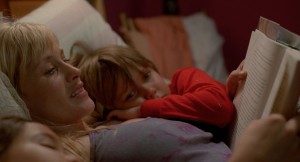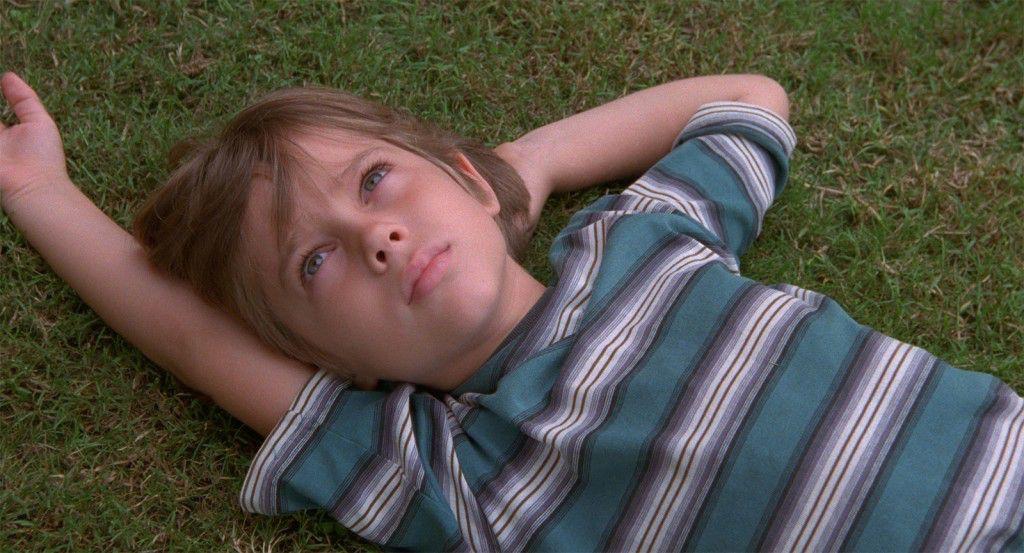Legend has it that Richard Linklater was once challenged to make a film around a conversation. The film was “Before Sunrise,” whose restricted single-night setting and honest intensity vaulted Linklater into the directorial pantheon.
With “Boyhood,” a film 12 years in the making, Linklater has taken that principle and expanded it. He didn’t frame a movie around conversation. Instead, he framed a life and shared it in small, achingly atmospheric snippets. In doing this, he creates a film full of quiet beauty formed from the most mundane parts of life.

“Boyhood” is essentially 12 short films stitched together. Each one chronicles the life of Mason, played by Ellar Coltrane from the age of 6 to 19. It shows him and his older sister, Samantha , (Lorelei Linklater) as they go through childhood, depicting their day-to-day lives with single mother, Olivia (Patricia Arquette), and visits with their recently returned father, Mason Sr. (Linklater regular Ethan Hawke).
Linklater revels in discovering cosmic truths in the spaces between normal interactions. There are few showy monologues, but only because each spoken word potentially carries the weighty meaning of a traditional monologue.
Mason’s development becomes crystal clear in scenes of bike riding, game playing and walking around a city block. His father passes on nuggets of wisdom about girls as they hike through scrappy brush. When his mother breaks down sobbing in existential crisis-mode as the two of them pack their belongings yet again, Mason watches and internalizes the lesson.
Illuminating these still moments would be a challenging feat for even the most seasoned actor, and Linklater hit pay dirt with the selection of Coltrane as the eponymous boy. Coltrane masters intense observation, imbuing his gaze with meaning in a way that carries from childhood to adolescence. As life moves past him — angry stepfathers, the behavior of an extroverted big sister, the posturing of teenage boys — he drinks it all in with a wide-eyed stare or a self-deprecating smirk. As a child, he watches. As a teenager, he exerts himself as an artist and as a person, but it all comes from the same quiet reflection. We watch him morph into an adult, but as he ages, there’s a sense of intrinsic personality.
That’s not to say that “Boyhood” doesn’t advocate for growth with age. Mason’s personality is juxtaposed against those of his parents. Strong, emotional Olivia continues to push for better, but she constantly ends up in desperate situations. As Mason Sr., Hawke starts out an immature deadbeat, but simmers down into a responsible family man, one who has concretely made the decision to embrace certain habits and eschew destructive ones. He tells 7-year-old Mason that Olivia is a piece of work. Ten years later, he dramatically zips his lips when approaching the subject with his son.
Again, the beauty lies in the pacing. The bits of life Linklater chooses aren’t the most bombastic or dramatic ones – although those moments are peppered into the mix, raising audience heart rates as they go. Unlike the tighter “Before” trilogy, “Boyhood” does occasionally fall victim to overly theatrical scenes. The rules of story demand conflict. In response, the drama is sometimes dialed to 11, with intermittent moral and emotional declarations overly guiding the audience and dropping with a thud.
It could be argued that the gimmick of this film is tired, that following a character as they age isn’t new. The concept has been done, most notably in the British “Up Series” by Michael Apted, which consisted of documentaries focusing on a gaggle of schoolchildren and checking in every seven years.
But “Boyhood” is different. The film doesn’t analyze life through the lens of an objective outsider. It treats childhood, adolescence and growing up with gravitas. In this, it shares DNA with Spike Jonze’s “Where the Wild Things Are.” Both films acknowledge that the fateful business of coming of age is indeed a serious one. At times scary, at times painful. But always, always treated with respect for the eyes of youth.
There is a point in the film when Mason the child, fresh from a Harry Potter book release, says to his father, “There’s no real magic in the world, right?” He may be asking about wizardry and witchcraft, but there’s desperation behind his voice. After nearly three hours of watching the unflinching honesty of families changing, surroundings changing and the very self changing – accompanied by eerily familiar tracking shots down suburban streets and through houses – the answer becomes obvious. Is there real magic? Definitely.




























































































































